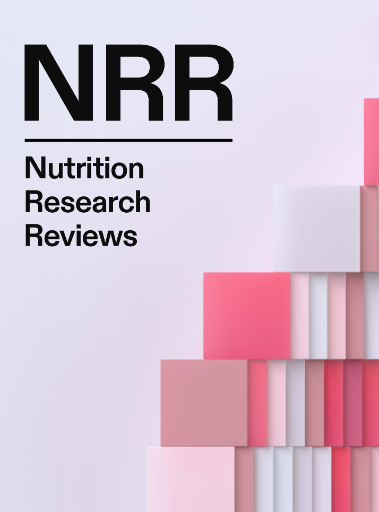国防人员的膳食摄入量和营养状况如何:系统文献综述
IF 4.5
2区 医学
Q1 NUTRITION & DIETETICS
引用次数: 0
摘要
最佳饮食和营养对军队的战备、表现和恢复至关重要。以往对军事饮食的研究主要集中在野战/战斗口粮的营养成分和部署期间的饮食摄入量。对驻军(即人员驻扎的军事基地)国防人员平时自由生活饮食摄入量和营养状况的探索研究也在不断积累。然而,目前还没有对国际上国防人员的整体饮食质量进行全面评估。因此,本综述根据国家营养指南和军用膳食参考摄入量 (MDRI) 对军人的膳食进行了评估。对原始研究进行了系统的文献综述。检索了截至 2023 年 2 月 20 日的 CINAHL、Medline (EBSCO)、Scopus (Elsevier)、PubMed 和 AMED 数据库。共有 36 项研究符合纳入标准。纳入研究的总体质量较高,偏倚风险较低。膳食质量评分表明,国防军成员的膳食质量从较差到一般不等。国防军成员的水果、蔬菜、全谷物、海鲜、植物蛋白和坚果摄入量较低,而添加糖、反式脂肪和加工肉类的摄入量较高。结果还表明,纤维、必需脂肪酸、维生素 A、维生素 E、叶酸、镁、锌和碘的摄入量不足。这可能会导致学习成绩下降、慢性疾病和精神疾病风险增加。需要进行更多的研究,以评估不良饮食质量对国防人员造成的长期后果。这些结果需要决策者的关注,以确保军事教育和饮食环境有利于健康饮食。本文章由计算机程序翻译,如有差异,请以英文原文为准。
What is the dietary intake and nutritional status of defence members: a systematic literature review
Optimal diet and nutrition is vital for military readiness, performance and recovery. Previous research on military diets has primarily focused on the nutritional composition of field/combat rations and dietary intake during deployment. There is accumulating research exploring the usual free-living dietary intake and nutritional status of defence members in garrison (i.e. military bases on which personnel are stationed). However, no comprehensive review has been conducted to assess the overall dietary quality of defence members internationally. Therefore, this review assessed the diets of military populations against national nutritional guidelines and Military Dietary Reference Intakes (MDRI). A systematic literature review of original research was conducted. CINAHL, Medline (EBSCO), Scopus (Elsevier), PubMed and AMED databases were searched up to the 20/02/2023. A total of thirty-six studies met the inclusion criteria. The overall quality of included studies was high, with a low risk of bias. The diet quality scores indicate poor to fair diet quality among defence members. Defence members display low intakes of fruits, vegetables, wholegrains, seafood, plant protein and nuts and high intakes of added sugars, trans fat and processed meat. Results also indicated suboptimal intake of fibre, essential fatty acids, vitamin A, vitamin E, folate, Mg, Zn and iodine. This may lead to reduced performance, increased risk of chronic diseases and mental health disorders. More research is needed to assess the long-term consequences of poor diet quality in defence members. These results require the attention of policymakers to ensure that military education and food environment is supportive of healthy eating.
求助全文
通过发布文献求助,成功后即可免费获取论文全文。
去求助
来源期刊

Nutrition Research Reviews
医学-营养学
CiteScore
16.10
自引率
1.80%
发文量
30
期刊介绍:
Nutrition Research Reviews offers a comprehensive overview of nutritional science today. By distilling the latest research and linking it to established practice, the journal consistently delivers the widest range of in-depth articles in the field of nutritional science. It presents up-to-date, critical reviews of key topics in nutrition science advancing new concepts and hypotheses that encourage the exchange of fundamental ideas on nutritional well-being in both humans and animals.
 求助内容:
求助内容: 应助结果提醒方式:
应助结果提醒方式:


